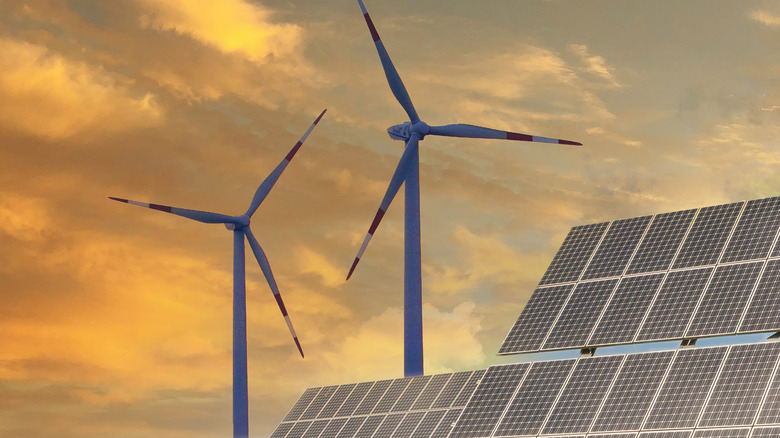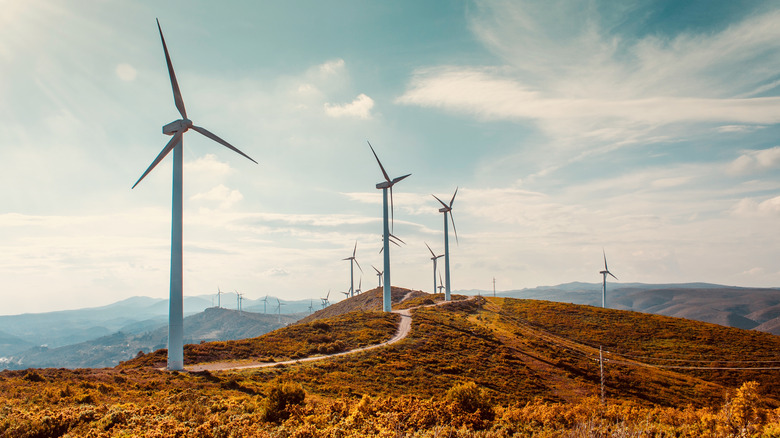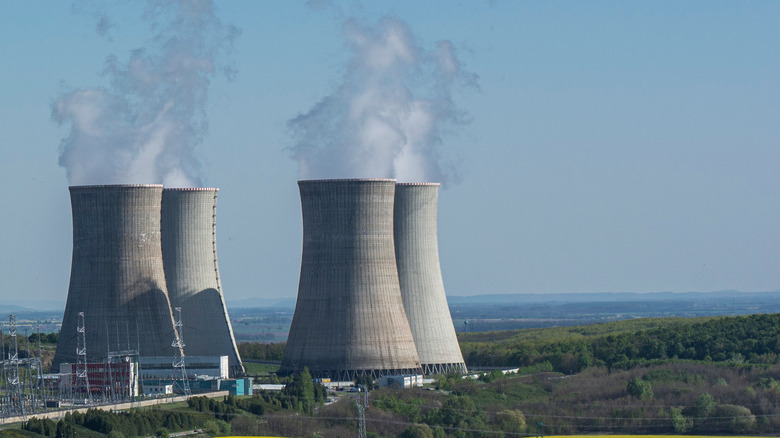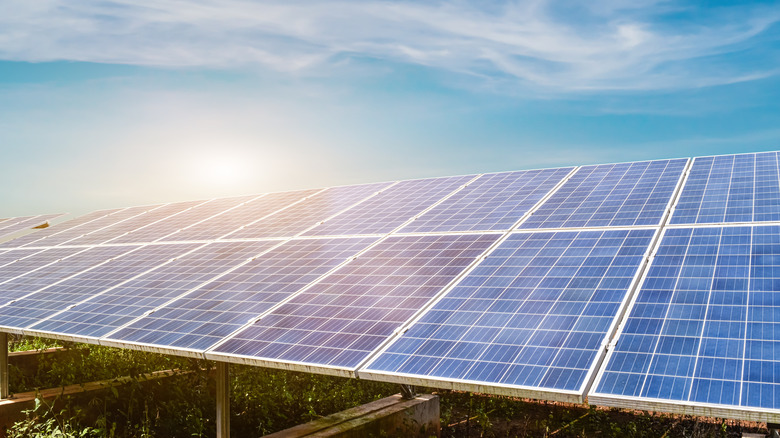Myths About Alternative Energy You Can Stop Believing
If we want a cleaner world, we need to use alternative energy. Alternative energy sources will not use coal or gas, so think wind power, solar, ocean power, or nuclear energy. All of these can keep powering cities and not actively destroy the planet.
But sometimes, people get weird ideas about alternative and renewable energy. It might be because it's a technology that they're not quite used to. Humans have gotten electricity from coal or electricity ever since, well, electricity was discovered. The first electric power plant in the world used steam power, said the New York Landmarks Preservation Commission. Even in 1882, people spread myths about electricity, ideas that we now find ridiculous. The 23rd president of the United States, Benjamin Harrison, was afraid of it.
So maybe in the future, many of the myths people believe today about alternative energy will seem funny. But why wait? There's a couple of myths you can stop believing right now.
Bird-killing machines
One popular form of alternative energy is wind power. If you've ever seen a wind turbine, you know wind farms kind of look like large swaths of land full of giant electric fans. Many people look at these wind turbines and think, oh, those must be hazardous.
And well, yes, if one falls on you, that's bad, but that's never happened. But one myth that continues to persist is that wind turbines will kill birds. According to the National Renewable Energy Laboratory, bird kills are extremely rare. It does happen, but it's estimated that birds killed by wind farms are less than 1 in 30,000 — less than the impact of buildings, cell phone towers, traffic, and house cats. (Shame on you, Fluffy Princess.)
Wind turbines hitting and killing birds have only been a problem in one place: at the Altamont Pass in California, which is one of the first areas to develop wind power. But over the decades, people have found that animals and wind turbines can get along. Chariot Energy wrote the wind power industry has since made technological leaps to protect wildlife in areas where they operate. These include using sound to deter birds, radio and GPS tracking, and artificial intelligence.
The real threat to birds, said the Audubon Society, is still climate change. Nearly 150 species of birds are more vulnerable and in danger of extinction because of climate change in North America.
Nope, you won't get cancer from a wind farm
Birds dying en masse because of wind turbines is not the only wind power myth out there. Politicians sometimes make ridiculous comments, and in 2019 the president made one such statement.
The New York Times reported former President Trump's claim that noise from wind turbines causes cancer, and that massive power failures will happen if the wind stops blowing. Both of these are patently untrue. The New York Times said the American Cancer Society does not have evidence linking turbine noise to cancer.
Science Based Medicine said the idea noise from wind turbines affecting health is mainly subjective. Some people claim the noise keeps them up at night, even if turbines have to be built very far from residential areas. But it seems that a person's political view on wind power, or if they find it annoying, influences how they report symptoms. Also, air conditioners are sitting on your window, emit noise, and haven't caused cancer yet.
Oh, and while wind turbines only generate electricity if the wind is blowing, the electric grid doesn't purely rely on one source of energy. Grids take from a mix of coal, renewable energy, and hydropower to prevent power failures and ensure they don't overload the system.
Chernobyl is not the norm
Nuclear power scares many people. And humans don't have the best track record when trying to win the public over. If Chernobyl is the most well-known example of a nuclear power plant, that doesn't inspire much love for the energy source, does it?
Per Forbes, nuclear power is the safest way to provide stable electricity. After all, the notable thing about the events of Chernobyl, Three Mile Island, and Fukushima is that deaths related to radiation from the sites has not killed more than 50 people. But one myth that persists about nuclear power is its potential for danger. There are people who claim the nuclear reactor will explode like a bomb.
Nuclear Connected explained there is no way a power plant's reactor can explode in that way because none of the materials that make nuclear bombs are present in a reactor. PBS explained that nuclear bombs consist of nearly 90 percent uranium or plutonium of the type that creates explosions, while reactors have significantly less.
And by now, many nuclear scientists have figured out how to safely store the chemicals that power the nuclear plant.
Stop glaring at me
Back in 2014, some pilots complained that solar panels in the desert could cause them to lose sight of the horizon and crash, wrote Quartz. Several pilots said the problem was worse when flying above the Ivanpah Solar Electric Generating System on the California-Nevada border.
From solar panels to windows to pools, reflective surfaces can have an impact on the ability of pilots to fly, though in varying degrees. Even though planes are too high up to be affected by the heat that panels generate, Quartz said pilots found they had difficulty scanning the area for other aircraft because of glare. This is the reason why as a kid, you were told to never shine a mirror up the sky, in case pilots can see it.
Solar panels causing air crashes will soon be a myth. As to70 noted, solar panel manufacturers have started to make panels with darkened surfaces, so they don't reflect light as much. Governments are also working to improve how to construct solar farms and require glint analysis to minimize the impact on planes.
Alternative energy is controversial, but there are some things you've probably heard that you can forget about.




